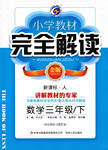题目内容
Jiang Yi, first prize winner ________________________________________________________________________________ |
Jiang Yi, a sixteen-year-old boy from Class 5, Senior High 1, has won first prize in the Jianghai Web
Page Design Competition held last week. A total of 356 contestants from all walks of life took part in the
competition, and Jiang Yi is the youngest.
Jiang Yi has been interested in computers for quite some time. He’s also interested in English. His
favorite subjects in school are Maths and Science. In his spare time, he likes to play football and Chinese
chess.
Jiang Yi attended the No. 1 Primary School in Jianghai City. He dreams of going to the best university when he graduates from high school. His goal is to have a successful career in the IT industry.
答案不唯一

 小学教材完全解读系列答案
小学教材完全解读系列答案
| |||||||||||||||||||||||||||||||||||||||||||||||||||||||||||||||||||||||||||||||||||||||||||||||||||||||||||||||||||||||||||||||||||||||||||||||||||||||||||||||||||||||||||||||||||||||||||||||||||||||||||||||||||||||||||||||||||||||||||||||||||||||||||||||||||||||||||||||||||||||||||
A friend of mine, in response to a conversation we were having about the injustices of life, asked me the question, “Who said life was going to be fair, or that it was even meant to be fair?” Her question was a good one. It reminded me of something I was taught as a youngster: life isn’t fair. It’s a disappointment, but it’s absolutely true. One of the mistakes many of us make is that we feel sorry for ourselves, or for others, thinking that life should be fair, or that someday it will be. It’s not and it won’t be.
One of the nice things about surrendering(屈从) to the fact that life isn’t fair is that it keeps us from feeling sorry for ourselves by encouraging us to do the very best we can with what we have. We know it’s not “life’s job” to make everything perfect: it’s our own challenge. Surrendering to this fact also keeps us from feeling sorry for others because we are reminded that everyone is dealt a different hand; everyone has unique strengths and problems in the process of growing up, facing the reality and making decisions; and everyone has those times that they feel unfairly treated.
The fact that life isn’t fair doesn’t mean we shouldn’t do everything in our power to improve our own lives or the world as a whole. To the contrary, it suggests that we should. When we don’t recognize or admit that life isn’t fair, we tend to feel pity for others and for ourselves. Pity, of course, is a self-defeating emotion that does nothing for anyone, except to make everyone feel worse than they already do. When we do recognize that life isn’t fair, however, we feel compassion(热情)for others and for ourselves. And compassion is a heartfelt emotion that delivers loving-kindness to everyone it touches. The next time you find yourself thinking about the injustices of the world, try reminding yourself of this very basic fact. You may be surprised that it can make you out of self-pity and into helpful action.
1.The writer thought of his friend’s question as a good one because .
|
A.he also wanted to know who held such an opinion. |
|
B.it made him recall something during his childhood. |
|
C.many people thought life was fair |
|
D.like his friend, he also thought life was unfair. |
2.The second paragraph of the passage mainly tells us that .
|
A.it’s nice to complain about life |
|
B.it’s nice to accept the injustice of life |
|
C.we should not feel sorry for everything |
|
D.everyone should be treated fairly |
3.From the passage, we can learn that the author’s attitude to life is .
|
A.positive |
B.negative |
C.self-pity |
D.indifferent |
4.Which of the following could be the best title of the text?
|
A.A Helpful Action: Try to Feel Compassion |
|
B.A bad Question: Why Life Isn’t Fair |
|
C.Surrender to the Fact That Life Isn’t Fair |
|
D.Do Our Best to Improve Ourselves |